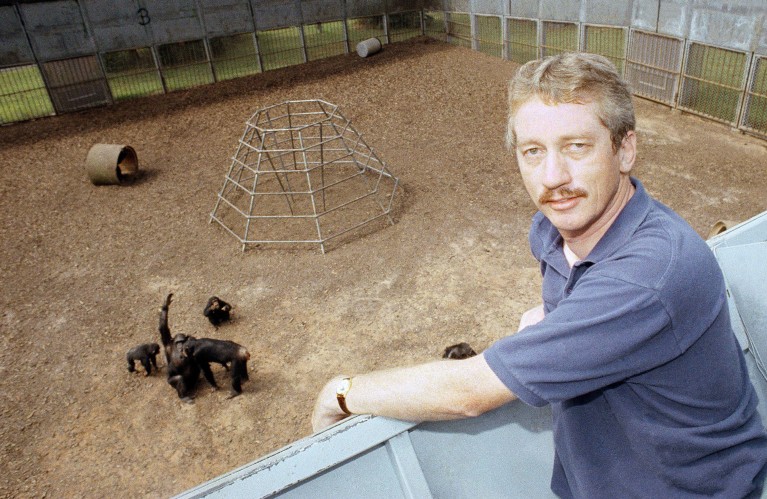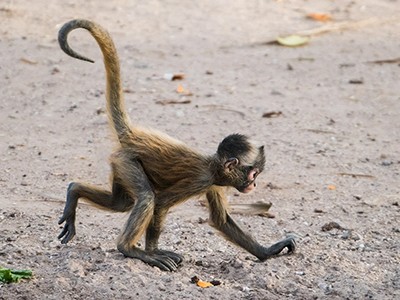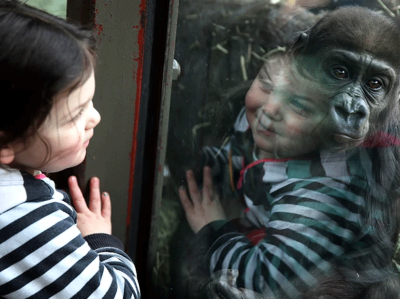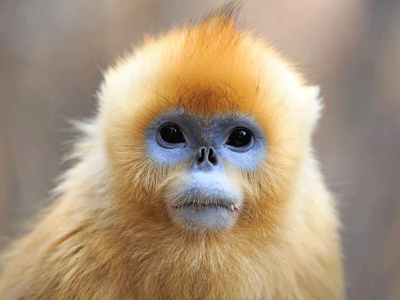
Credit: Erik S. Lesser/AP/Alamy
Frans de Waal made an early but influential entrance onto the international scientific stage with his first book, Chimpanzee Politics (1982), which documented the intricate social manoeuvring of chimpanzees in Burgers’ Zoo in Arnhem, the Netherlands, during his PhD and postdoc years. de Waal showed that the chimpanzees often acted in ways similar to social strategies devised by Renaissance diplomat Niccolò Machiavelli, as their alliances shifted in their pursuit of power.
For the rest of his career, de Waal expertly toggled between publishing peer-reviewed research and a dozen other books that elegantly communicated discoveries about the behaviour and minds of animals to a growing lay readership. His and others’ research has progressively narrowed the percieved gap in cognitive ability between humans and non-human apes and other animals. de Waal has died aged 75.
How humans lost their tails — and why the discovery took 2.5 years to publish
Throughout the first half of the twentieth century, research on animal intelligence was epitomized by experiments in which a single animal in a cage was given a physical problem, such as picking the odd one out among several objects — echoing human intelligence tests. de Waal’s analyses suggested that the most complex challenges to chimpanzees’ intellect lay less in the physical domain and more in their complex social lives. Today, the nature and scope of social intelligence, in both humans and other animals, is a major area of research.
de Waal’s later contributions contrasted with his initial focus. Peacemaking Among Primates (1989) documented his discovery of reconciliatory behaviour, in which two individuals would make up after a fight, embracing and grooming each other. Another phenomenon that he observed was consolation, in which a third party approached the loser to embrace or groom them. de Waal interpreted such actions as subtle adjustments that finessed individuals’ complex social lives, similar to those seen in humans.
Born in ’s-Hertogenbosch in the Netherlands, Frans de Waal trained as a zoologist at the Radboud University Nijmegen and the University of Groningen before undertaking a PhD at Utrecht University, supervised by Dutch biologist Jan van Hooff. Both were committed to the ethological approach of their Nobel-prize-winning countryman, Niko Tinbergen, who recommended that any study of animals should begin with careful observation of their unfettered behaviour. In a revised 1989 edition of Chimpanzee Politics, de Waal pointed out that the behavioural anecdotes in his writing did not represent the main basis of his scientific conclusions. On the contrary, his observations, quantitative data, behavioural experiments and statistical analyses were, crucially, built on the foundation of naturalistic observation.
Consciousness: what it is, where it comes from — and whether machines can have it
After de Waal moved to the Wisconsin National Primate Research Center in Madison in 1981, he extended his research on reconciliation to several thousand aggressive episodes recorded in groups of monkeys. These revealed that the likelihood of reconciliation varied between species. To test the roles of instinct and learning in this behaviour, de Waal reared juveniles of two species together: stump-tail macaques (Macaca arctoides), which commonly reconcile, and rhesus macaques (Macaca mulatta), which do not. The conciliatory tendency of the latter tripled with exposure to the higher frequency of reconciliation among the stump-tails.
de Waal also explored the process of learning from others: the foundation of culture. His contributions ranged from compelling records of chimpanzees imitating others to large-scale experiments seeding alternative forms of tool use in different chimpanzee groups. Results demonstrated the cultural spread of novel tool use, generating local traditions and complementing the evidence for putative chimpanzee cultures in the wild, where demonstrating a causal role of social learning is more difficult. These studies were completed in de Waal’s field station colonies after he moved to Emory University in Atlanta, Georgia, in 1991. In The Ape and the Sushi Master (2001), de Waal synthesized other discoveries about primate culture, paying homage to the pioneering work of Japanese primatologists and establishing enduring links with them.
Biggest ever study of primate genomes has surprises for humanity
He returned to the theme of culture in his last work, Different (2022), in which he tackled the potentially treacherous topics of sex and gender. Noting evidence for primates culturally assimilating appropriate behaviour for their sex, he argued that this is a manifestation of what we mean by gender — yet another phenomenon that is not unique to humans. Nor, as he showed, are homosexuality and gender transitions.
de Waal’s research portfolio extended to diverse species, notably elephants, capuchin monkeys and bonobos (Pan paniscus), tackling typically human concepts such as morality, fairness and empathy. In Our Inner Ape (2005), he offered a nuanced analysis of what humans inherited from our common ancestor with the bonobo and the chimpanzee, our closest living relatives. As de Waal and others have shown, the two ape species display a remarkable diversity of behavioural tendencies. The many puzzling contradictions of human behaviour, from altruism and kindness to violence and genocide, become more comprehensible, de Waal argued, when viewed through the lens of the evolutionary ancestry that we can infer from all we have discovered about our contemporary primate cousins.
Despite his many honours, de Waal wore his fame lightly. He was modest and genial, with a flair for defusing tense academic debates with the wry humour that is on display in his popular TED talks. He vigorously supported the careers of a generation of behavioural scientists. A fitting epitaph might be the title of one of his books: Good Natured (1996). “One thing that I’ve seen often in my career is claims of human uniqueness that fall away and are never heard from again,” he said in 2014. “We always end up overestimating the complexity of what we do … I’ve brought apes a little closer to humans but I’ve also brought humans down a bit.”

 How humans lost their tails — and why the discovery took 2.5 years to publish
How humans lost their tails — and why the discovery took 2.5 years to publish
 Consciousness: what it is, where it comes from — and whether machines can have it
Consciousness: what it is, where it comes from — and whether machines can have it
 Biggest ever study of primate genomes has surprises for humanity
Biggest ever study of primate genomes has surprises for humanity
 Is ‘speciesism’ as bad as racism or sexism?
Is ‘speciesism’ as bad as racism or sexism?
 Christophe Boesch (1951–2024), primatologist and chimpanzee champion
Christophe Boesch (1951–2024), primatologist and chimpanzee champion




